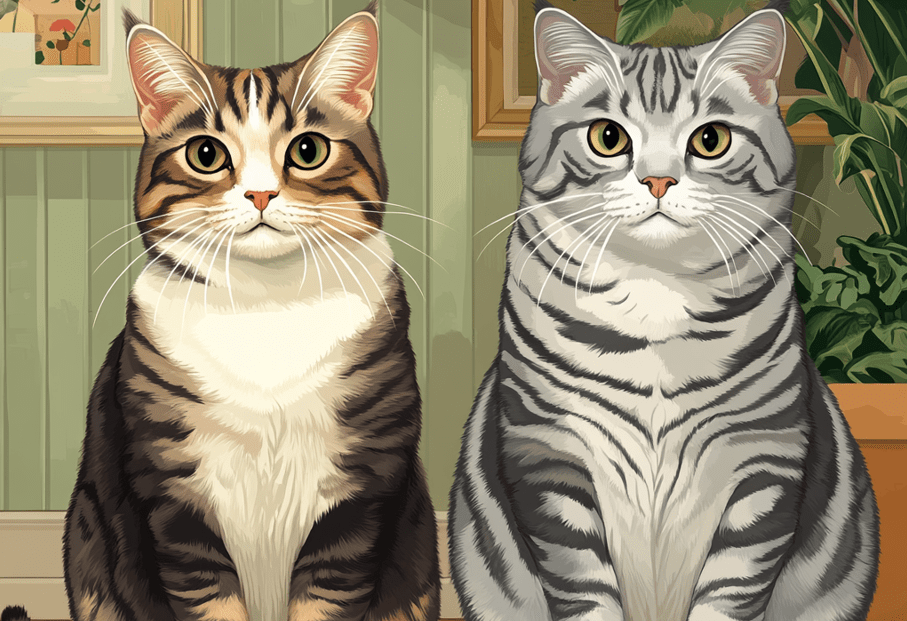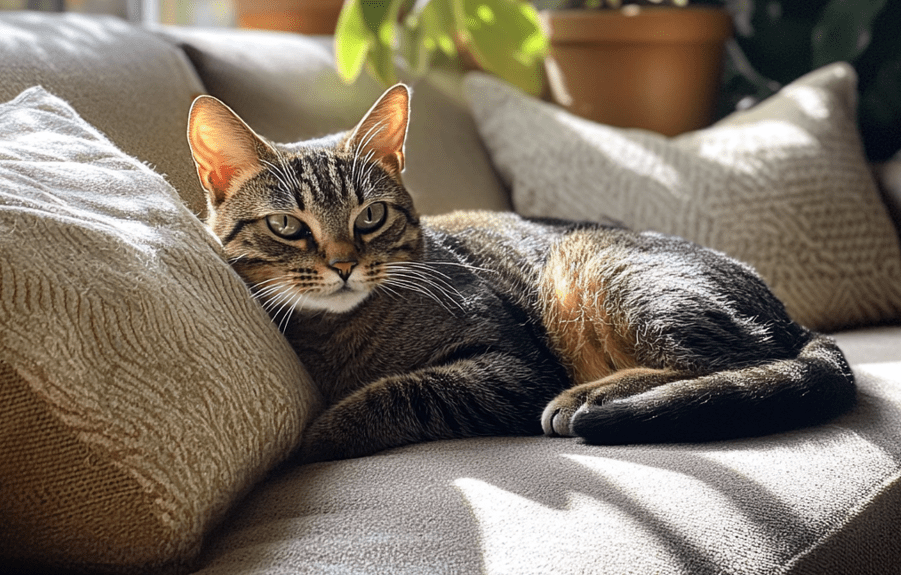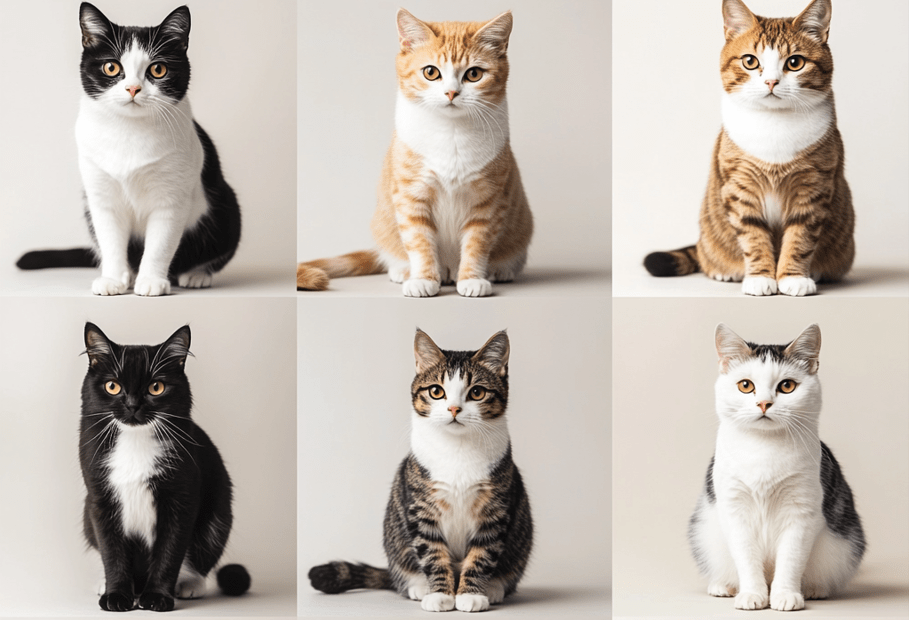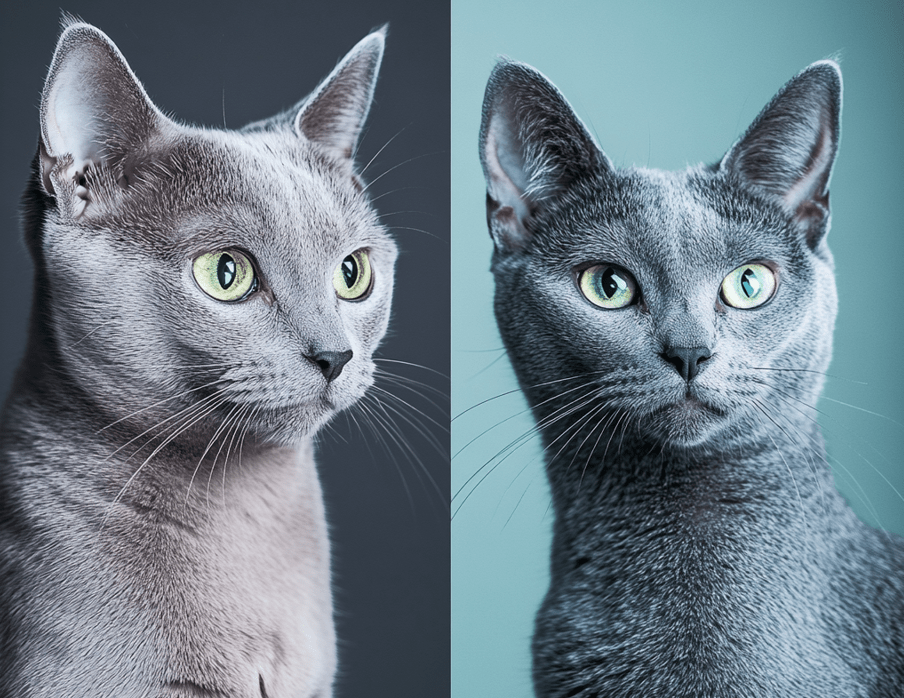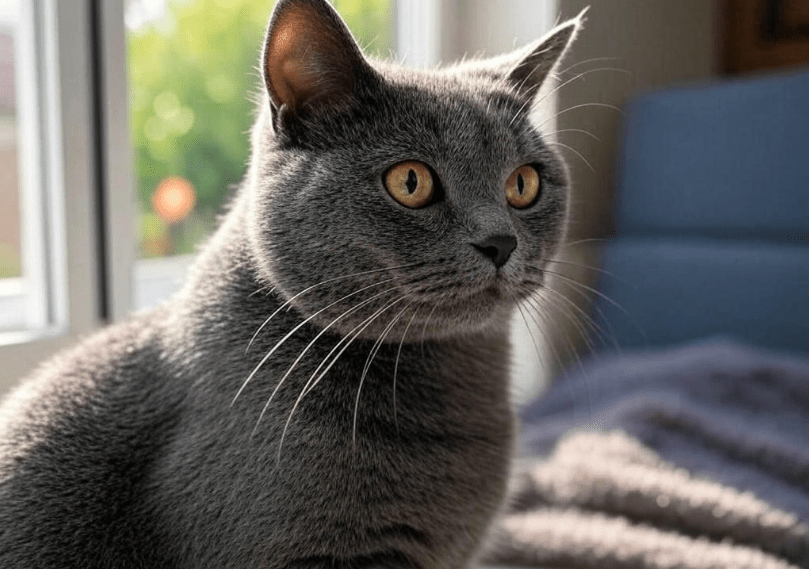
If you’ve ever watched your Domestic Shorthair knock things over, sending your favorite mug or a stack of papers crashing to the floor, you’re not alone. This quirky behavior is a common trait among Domestic Shorthair cats, leaving many pet owners puzzled and frustrated. Understanding why your Domestic Shorthair knocks things over is the first step to managing this behavior effectively. In this comprehensive guide, we’ll explore the reasons behind this feline habit, offer practical solutions to minimize it, and provide insights to strengthen your bond with your cat.
What’s Behind Your Domestic Shorthair’s Knocking Habit?
Domestic Shorthair cats are known for their playful, curious, and intelligent nature. While their tendency to knock objects off surfaces may seem like random mischief, it’s often driven by instinct, curiosity, or a need for attention. Let’s dive into the primary reasons why your Domestic Shorthair knocks things over.
1. Instinctual Hunting Behavior
Cats, including Domestic Shorthairs, are natural hunters. Knocking objects over mimics the act of pouncing on prey. When your cat swats at a pen or pushes a glass toward the edge of a table, they’re engaging in a behavior rooted in their predatory instincts. This action allows them to practice their hunting skills, even in a domestic environment where actual prey is absent.
How it manifests: Your cat may bat at objects, watch them fall, and then inspect the “prey” to see if it moves.
Why it matters: This behavior satisfies their need to explore and interact with their environment, keeping their minds sharp.
2. Curiosity and Exploration
Domestic Shorthairs are endlessly curious. Knocking things over is a way for them to investigate their surroundings. When an object moves or makes a sound as it falls, it piques their interest, encouraging them to repeat the behavior.
Example: A Domestic Shorthair might push a small toy off a shelf to see how it behaves when it hits the ground.
Key takeaway: This curiosity is a sign of a healthy, engaged cat, but it can lead to broken items if not managed.
3. Seeking Attention
If your Domestic Shorthair knocks things over while you’re nearby, they might be trying to get your attention. Cats quickly learn that knocking objects off surfaces often results in a reaction from their owners—whether it’s a shout, a laugh, or rushing to clean up the mess.
Why it happens: Cats crave interaction, and negative attention is still attention.
How to spot it: If your cat stares at you while slowly pushing an object toward the edge, they’re likely seeking engagement.
4. Boredom or Lack of Stimulation
A bored Domestic Shorthair is more likely to engage in destructive behaviors, including knocking things over. Without sufficient mental or physical stimulation, your cat may turn to knocking objects as a form of entertainment.
Signs of boredom: Excessive knocking, restlessness, or other mischievous behaviors like scratching furniture.
Solution: Providing enrichment can significantly reduce this behavior.
5. Territorial Marking
Cats sometimes knock things over to mark their territory. By interacting with objects in their environment, they leave their scent behind, claiming the space as their own.
Less common but possible: This is more likely in multi-cat households or when new objects are introduced.
How to address it: Ensure your cat feels secure in their environment with plenty of personal space and resources.
Why Domestic Shorthairs Are Prone to This Behavior
Domestic Shorthairs are a diverse breed with a mix of genetic traits, making them highly adaptable and energetic. Their playful and inquisitive nature makes them more likely to engage in behaviors like knocking things over compared to more sedentary breeds. Additionally, their short coats and athletic builds allow them to leap onto high surfaces, giving them access to shelves, counters, and tables where they can wreak havoc.
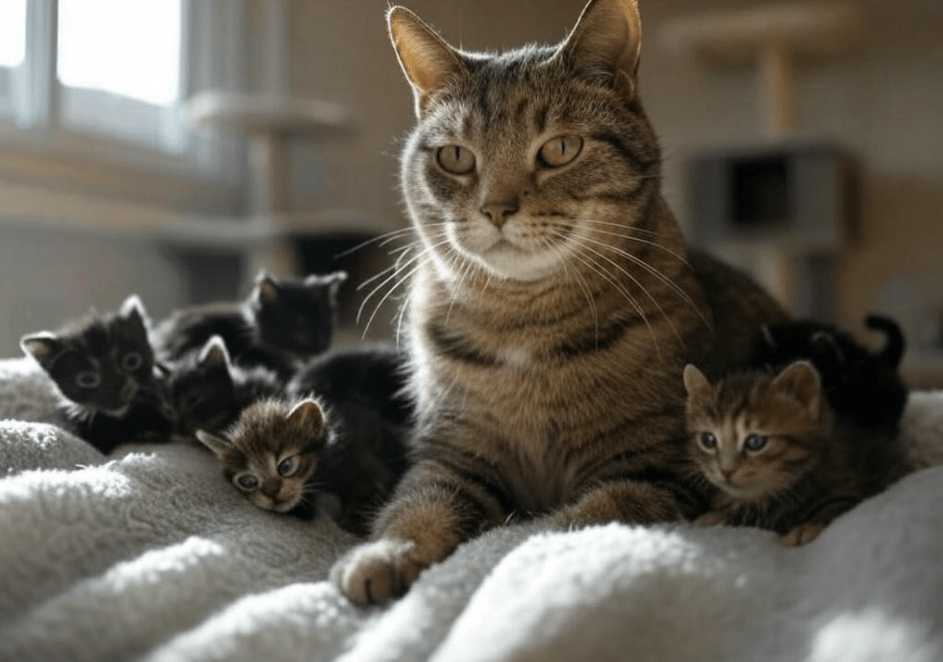
Breed traits: High energy, intelligence, and a strong prey drive.
Environment matters: A cluttered or stimulating environment may encourage this behavior more than a minimalist one.
The Impact of Knocking Behavior on You and Your Home
While your Domestic Shorthair knocking things over might seem harmless at first, it can lead to several challenges:
Broken items: Fragile objects like glassware or electronics can be damaged.
Stress for owners: Constantly cleaning up or worrying about valuable items can be frustrating.
Safety risks: Sharp or heavy objects could injure your cat or others.
Disrupted harmony: In multi-pet households, this behavior may annoy other animals.
Understanding the root causes is essential, but the real value lies in knowing how to manage and redirect this behavior effectively.
How to Manage Your Domestic Shorthair’s Knocking Behavior
Managing your Domestic Shorthair’s tendency to knock things over requires a combination of environmental adjustments, behavioral redirection, and positive reinforcement. Below are actionable strategies to help you curb this habit while keeping your cat happy and engaged.
1. Cat-Proof Your Home
The first step is to minimize opportunities for your Domestic Shorthair to knock things over. By creating a cat-friendly environment, you can reduce the risk of accidents and frustration.

Clear high surfaces: Remove fragile or valuable items from shelves, tables, and counters.
Use adhesive putty: Secure lightweight objects to surfaces with museum putty or double-sided tape.
Stabilize furniture: Ensure shelves and tables are sturdy to prevent tipping if your cat jumps on them.
Store small items: Keep pens, keys, and other small objects in drawers or containers.
Pro tip: Walk through your home from your cat’s perspective to identify tempting objects within their reach.
2. Provide Enrichment and Stimulation
A well-stimulated Domestic Shorthair is less likely to resort to knocking things over out of boredom. Enrichment activities keep your cat’s mind and body active, channeling their energy into positive outlets.
Interactive toys: Puzzle feeders, laser pointers, and feather wands mimic hunting and engage your cat’s instincts.
Vertical spaces: Install cat trees, shelves, or window perches to give your cat safe places to climb and explore.
Rotate toys: Introduce new toys regularly to keep your cat’s interest.
Daily playtime: Spend 15-30 minutes a day playing with your Domestic Shorthair to burn off excess energy.
Example: A puzzle feeder filled with treats can keep your cat occupied for hours, reducing their need to knock objects for entertainment.
3. Redirect Attention-Seeking Behavior
If your Domestic Shorthair knocks things over to get your attention, teach them that positive behaviors yield better rewards.
Ignore the behavior: Avoid reacting when your cat knocks something over, as any response reinforces the behavior.
Reward good behavior: Praise or treat your cat when they play with toys or relax calmly.
Engage proactively: Schedule regular cuddle or play sessions to fulfill your cat’s need for attention.
Key takeaway: Consistency is crucial—rewarding positive actions while ignoring unwanted ones will gradually shift your cat’s behavior.
4. Create a Safe Knocking Zone
Sometimes, it’s best to work with your cat’s instincts rather than against them. Designate a specific area where your Domestic Shorthair can knock things over without causing harm.
Set up a play station: Place lightweight, cat-safe objects (like ping pong balls or plastic cups) on a low table or mat.
Encourage interaction: Reward your cat for knocking objects in this designated area.
Keep it fun: Add new items periodically to maintain their interest.
Why it works: This approach satisfies your cat’s desire to knock things while protecting your belongings.
5. Address Boredom with Environmental Changes
A stimulating environment can prevent boredom-driven knocking. Make your home more engaging for your Domestic Shorthair with these tips:
Window perches: Allow your cat to watch birds or outdoor activity.
Hide treats: Scatter treats around the house to encourage foraging.
Cardboard boxes: Provide boxes or tunnels for exploration.
Background noise: Soft music or a pet-safe TV channel can keep your cat entertained when you’re away.
Pro tip: Rotate environmental changes weekly to keep your cat’s surroundings fresh and exciting.
6. Train with Positive Reinforcement
Training your Domestic Shorthair to avoid knocking things over is possible with patience and positive reinforcement.
Clicker training: Use a clicker to mark desired behaviors, like playing with a toy instead of knocking a cup.
Treat rewards: Offer treats when your cat chooses appropriate activities.
Redirect gently: If you catch your cat about to knock something, distract them with a toy or sound and reward them for engaging with it.
Note: Never punish your cat for knocking things over, as this can lead to stress or fear, worsening the behavior.
7. Consult a Veterinarian if Needed
In rare cases, excessive knocking or destructive behavior may signal an underlying health issue, such as stress, anxiety, or hyperthyroidism. If your Domestic Shorthair’s behavior seems out of character or obsessive, consult a veterinarian.
What to look for: Changes in appetite, litter box habits, or aggression alongside knocking.
Next steps: A vet can rule out medical causes and recommend behavioral interventions or, if necessary, medication.
Common Mistakes to Avoid
When addressing your Domestic Shorthair’s knocking behavior, steer clear of these pitfalls:
Yelling or scolding: This can make your cat anxious or encourage attention-seeking behavior.
Leaving temptations out: Keeping fragile items accessible invites trouble.
Neglecting playtime: A bored cat will find ways to entertain themselves, often destructively.
Inconsistent responses: Mixed signals confuse your cat and slow progress.
Conclusion
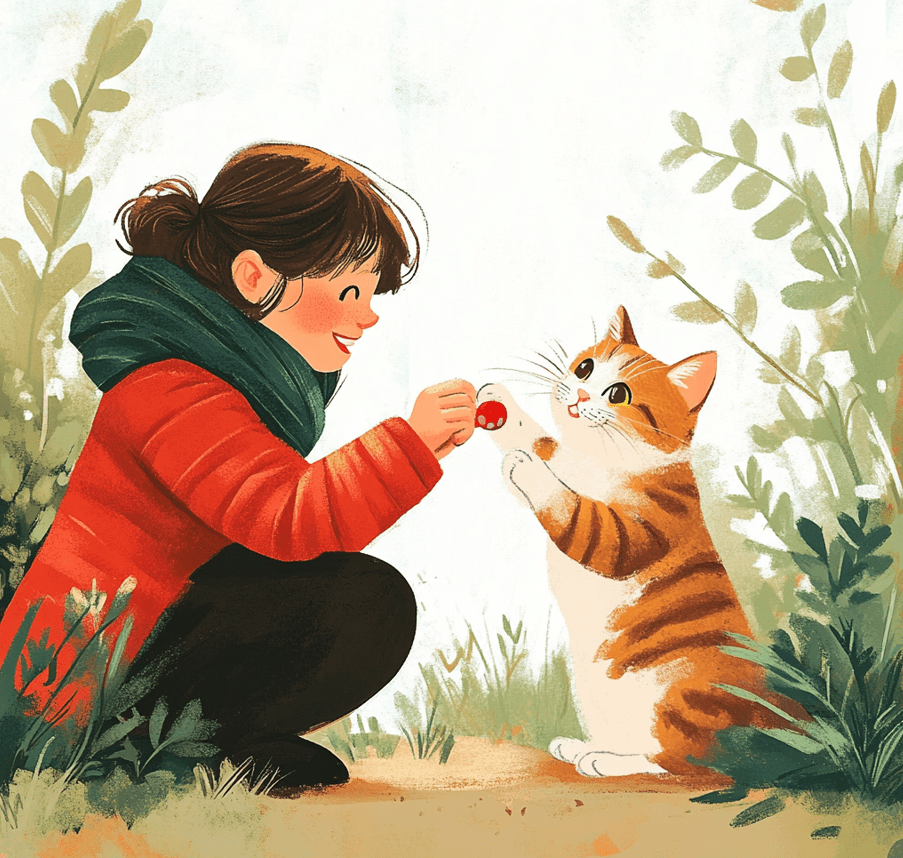
Your Domestic Shorthair knocking things over is a natural expression of their playful, curious, and intelligent nature. By understanding the reasons behind this behavior—whether it’s hunting instincts, boredom, or a bid for attention—you can take proactive steps to manage it. From cat-proofing your home to providing enrichment and using positive reinforcement, the strategies outlined in this guide will help you create a harmonious living space for both you and your feline friend.
With patience and creativity, you can turn your Domestic Shorthair’s mischievous habits into opportunities for bonding and fun. Implement these tips today, and enjoy a happier, less chaotic life with your beloved cat.

